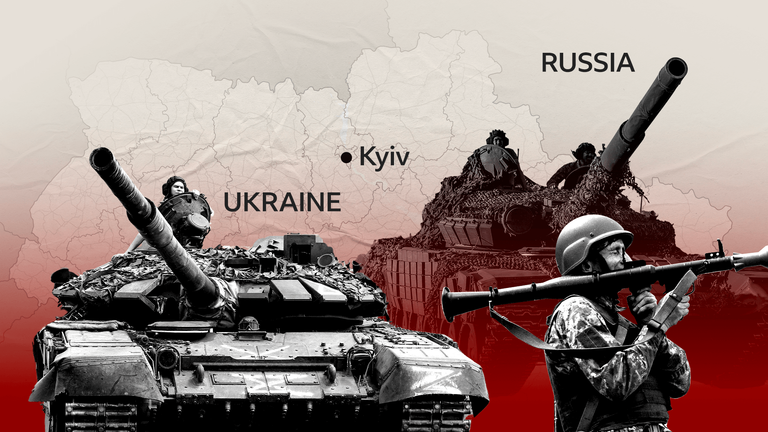
A Russian diamond mining company employee has been sentenced to a maximum-security penal colony for sending cryptocurrency donations to support the Ukrainian military. According to Izvestia, the individual was charged with "providing financial assistance to a Ukrainian terrorist organization," underscoring the harsh penalties imposed by Russian authorities on such acts during the ongoing conflict with Ukraine.
The Case: Crypto as a Tool in Geopolitical Conflict
The convicted individual, a male resident of the Mirninsky District in Yakutia (Republic of Sakha), was arrested by the Federal Security Service (FSB) of Russia. Identified as an employee of a diamond mining company, the man, born in 1988, was accused of repeatedly transferring cryptocurrency to Ukrainian militants.
According to the FSB, the funds were allegedly sent to a specific unit of the Ukrainian Armed Forces, which used them for reconnaissance and subversive activities aimed at compromising Russia’s national security.
The FSB spokesperson claimed the man had engaged with members of the Ukrainian military via social media platforms, where he received detailed instructions on transferring funds to designated crypto wallets. These transactions were framed by the FSB as a direct act of treason under Article 275 of the Russian Criminal Code, which covers “high treason” and financial support to foreign states or organizations hostile to Russian interests.
Broader Crackdown on Crypto Donations in Russia
This incident is not an isolated case but part of a wider crackdown by Russian authorities targeting individuals accused of financing Ukraine’s military through cryptocurrency.

Other Recent Arrests:
Earlier in January, another man was detained in the Donetsk People’s Republic (Yenakiieve/Yenakiyevo), also on suspicion of transferring crypto to wallets linked to Ukraine's Armed Forces. Similar charges have been brought against:- A Moscow-based scientist accused of funding Ukrainian forces.
- Two residents of the Khabarovsk Krai region, who also faced treason charges for crypto transactions.
FSB’s Position:
The FSB has labeled all such acts as direct threats to Russia’s national security. By portraying these financial transactions as enabling reconnaissance and military operations, the FSB is reinforcing its stance on zero tolerance for crypto donations linked to Ukraine.Historical Context:
Since the outbreak of the Russia-Ukraine conflict in 2022, cryptocurrency has become a pivotal tool for financing war efforts. Ukrainian authorities and military organizations have openly solicited donations in crypto, receiving millions from international donors to fund operations, purchase equipment, and provide humanitarian aid.
The Implications: Russia’s Strict Regulation of Crypto in Conflict
Russia’s government has long maintained a tight grip on financial systems, and the rise of cryptocurrency as a borderless, unregulated medium of exchange poses challenges to this control.
Leveraging Article 275:
The invocation of Article 275 in these cases signals that crypto transactions aiding Ukraine are equated with acts of treason, punishable by severe sentences. This approach aims to deter Russians from circumventing state-imposed restrictions using digital currencies.Heightened Surveillance:
The FSB has likely increased its monitoring of cryptocurrency transactions, particularly involving wallets flagged as belonging to Ukrainian entities or connected to known donation platforms.Criminalization of Alternative Financing:
While cryptocurrency offers a decentralized means of transferring funds, its use in this context has been criminalized as a direct affront to state security. This underscores the increasing weaponization of financial systems, including crypto, in modern geopolitical conflicts.

The Role of Cryptocurrency in Modern Warfare
This case reflects the broader intersection of cryptocurrency and geopolitical conflict, where blockchain-based transactions blur the lines between legal remittance and subversive activities:
- For Ukraine: Cryptocurrency has been a lifeline, providing an alternative to traditional financial systems often hindered by international sanctions or war-induced disruptions.
- For Russia: The use of crypto by its citizens to fund Ukraine’s military represents a new frontier in countering dissent and perceived betrayal, illustrating how digital assets are reshaping state security concerns.
Conclusion: Crypto in a High-Stakes Battlefield
As the Russia-Ukraine conflict continues, cryptocurrency has emerged as a controversial financial tool. On one hand, it allows international support for Ukraine to flow unhindered, but on the other, it has sparked a fierce response from Russian authorities. The imprisonment of individuals like the Yakutian miner serves as a warning, reflecting Moscow’s intent to clamp down on any use of crypto perceived as undermining its war efforts.
These developments also highlight the double-edged nature of cryptocurrency in global conflicts, simultaneously enabling freedom of financial movement and raising critical questions about governance, regulation, and ethical use.
Thank you!
How about now it turns out that you can be put in jail for helping the people of Ukraine As they used to say a while ago about the people of 2030 you will have nothing and you will be happy and your money will not belong to you and you will have to do what the big bosses say is right